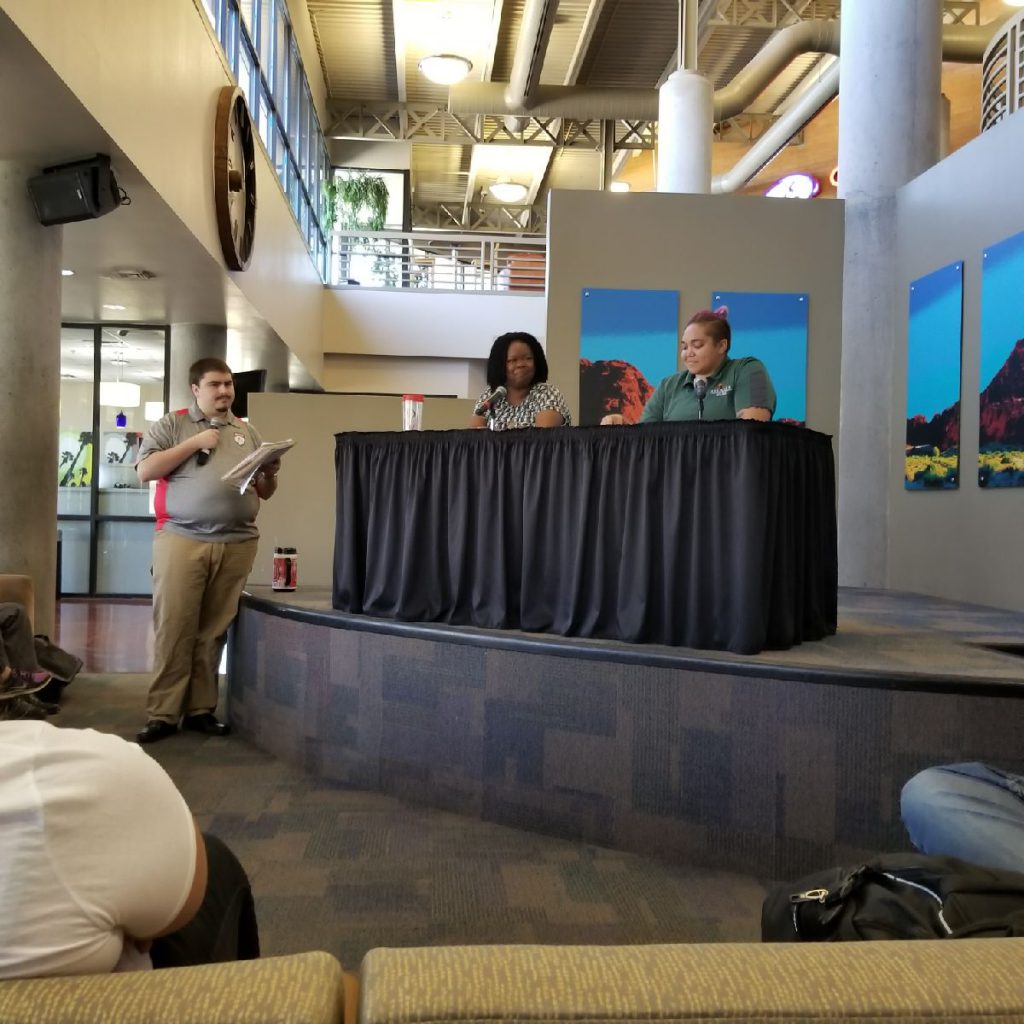The Pagan Ideology Club meets every Sunday afternoon, and no, its members don’t perform blood sacrifices or cast down evil when they gather.
The goal of the club is to open up awareness of different spiritual paths and increase basic knowledge of Paganism on Dixie State University’s campus, said Flora Ipaktchian, Pagan Ideology Club president and a senior biology major from St. George.
Casey Anderson, Pagan Ideology Club adviser and a junior English major from Ferron, said anything that didn’t descend from Abraham is technically a Pagan belief, and that Paganism is an umbrella term that encompasses many different spiritual beliefs.
Ipaktchian said the best part of the club is watching students feel accepted.
“We get a lot of — not necessarily outcasts — but they don’t quite fit in other [groups] and they come in here and you can just feel them open up,” she said.
Since Paganism encompasses a lot of different beliefs, Ipaktchian said it’s important to her to ask club members what they want to see covered. She said she arranges the activities around the members so they can get the most out of it.
Jesse Fife, a freshman early childhood education major from Seattle, said she joined the club because she’s interested in mythology and the Pagan culture in general.
“I used to consider myself Wiccan, but I’m kind of moving away from that and trying to be open to a bunch of other stuff,” Fife said. “I’m a very spiritual person, and so I’m just trying to take that in.”
Fife said she has learned a lot about Pagan beliefs since joining the club, and that it has taught her deep symbolism.
The club has around 60 members on Orgsync, but anywhere from 5-20 people show up to the meetings depending on the time of the semester and what the activity is. Some activities the club has hosted are bonfires, potlucks, a celebration for the end of the agricultural season and games that teach about fundamental ideals behind Pagan beliefs.
One specific belief behind Paganism is the belief in crystals.
Ipaktchian pulled a stone necklace out of her purse that was made with obsidian and different kinds of quartz. She made the necklace herself in order to help her meditate. The idea behind crystals is that they were made in certain ways and at different times, and so the molecular structure emits a unique vibration of energy — so the stones absorb your energy and the individual interacting with the stone absorbs its energy.
“Most people don’t realize that Paganism is like an earth-based spiritual path,” Ipaktchian said. “The mindset is the biggest obstacle we will ever encounter.”
Anderson said the club works to illuminate common misconceptions about Paganism.
“There’s been semesters where we’ve had a couple LDS people come out who were generally interested and who wanted to learn more,” he said. “We’ve had some who will walk up to the [table at Club Rush] and be like ‘Oh, never mind,’ because they’re like ‘I can’t be seen with these devil worshipers.’”
He said some of the backlash has been frustrating, because Paganism is simpler than most people think.
Fife said Pagans aren’t that much different than those who believe in a single God.
“We don’t do any crazy sacrificing rituals or anything like that,” Fife said. “There is a very small portion of Pagans who do that, but that’s [considered] a cult when they start doing all that weird stuff.”
Ipaktchian said they have also gotten a lot of nice, open-minded students inquire about the club.
“We’ve had some really good successes where we’ve met people who are just really liberal thinkers, and we’ve had some really good, deep philosophical discussions,” she said. “That’s what I’m here for. I love that kind of stuff.”
To become a member of the Pagan Ideology Club, students can sign up on Orgsync. Individuals who are interested can also visit its Facebook page and attend its meetings every Sunday at 2 p.m. in room 210 of the Browning Building.



